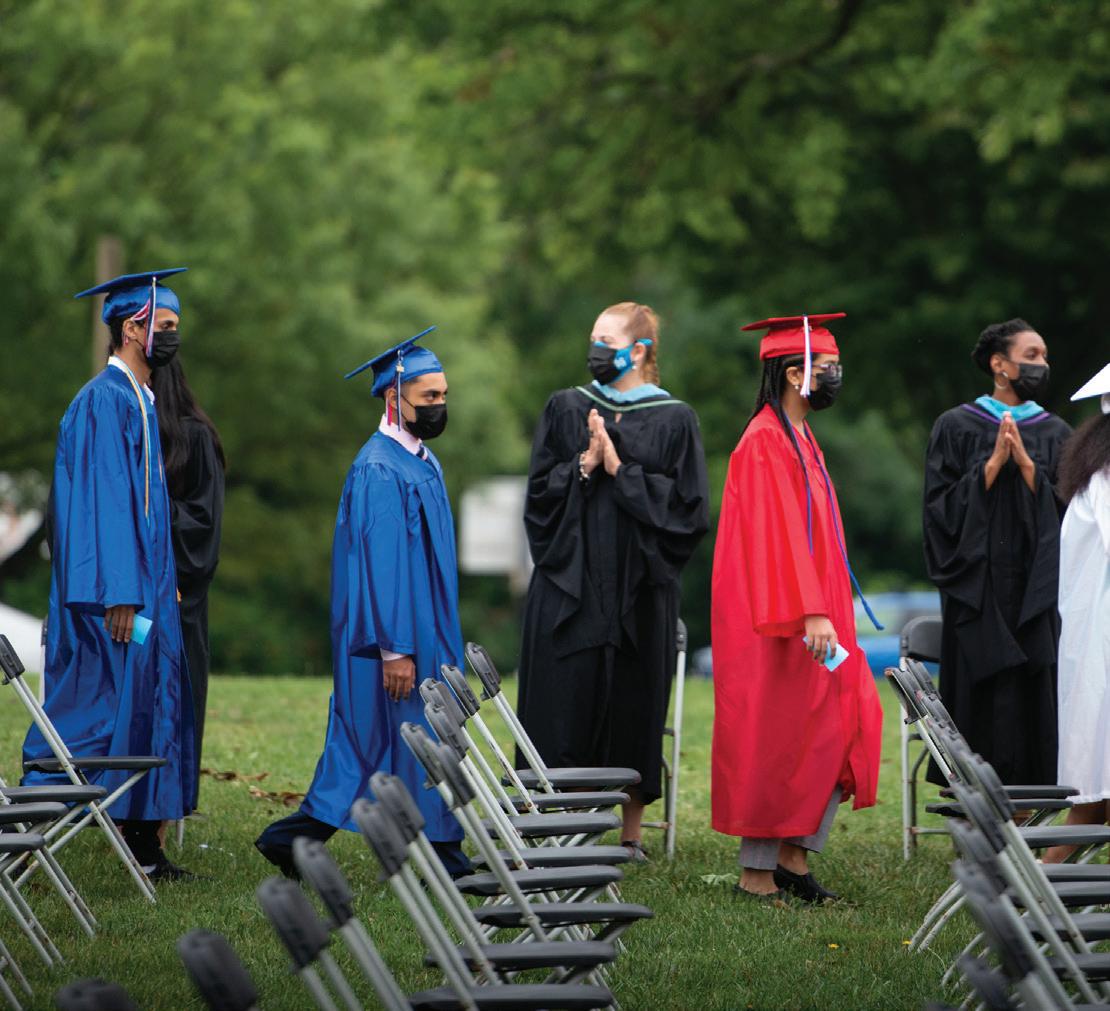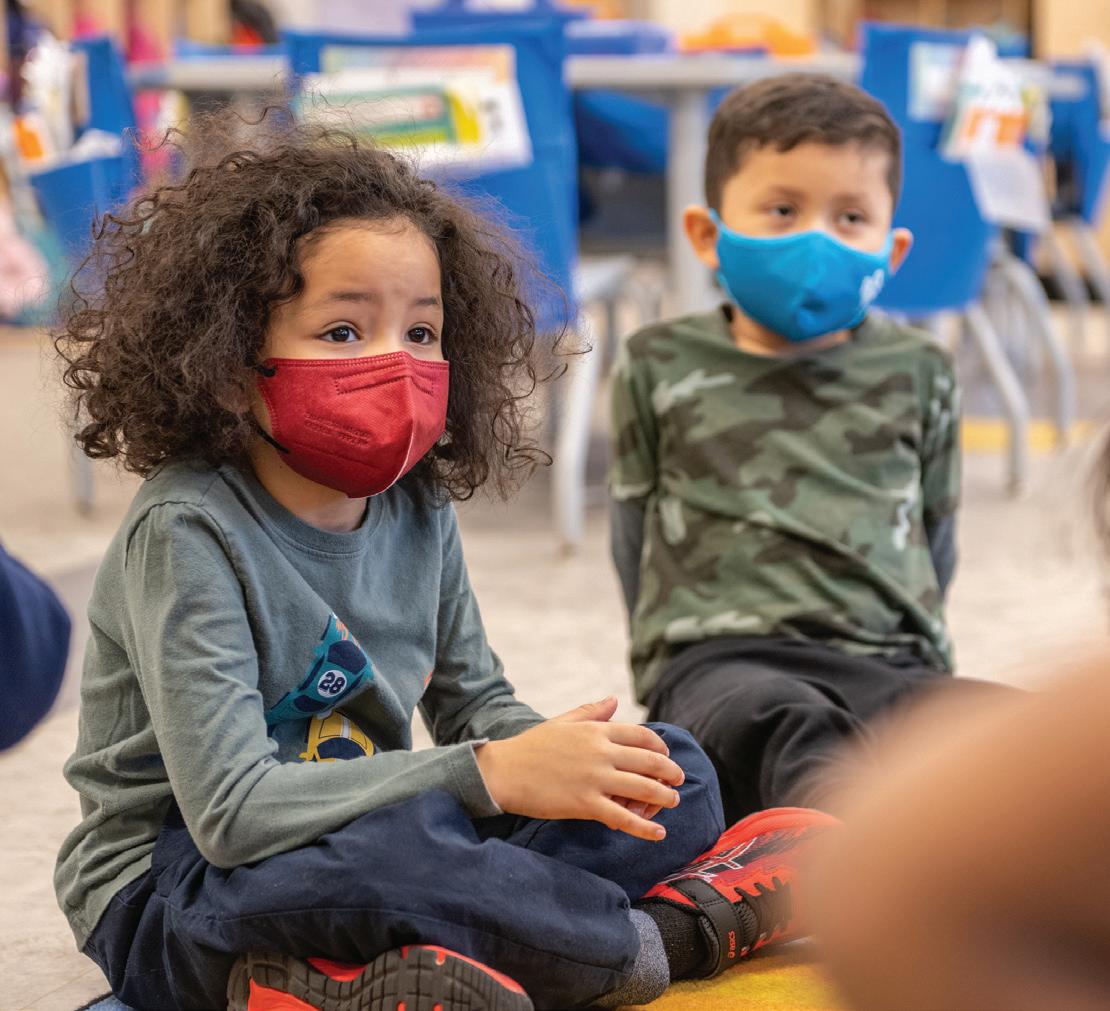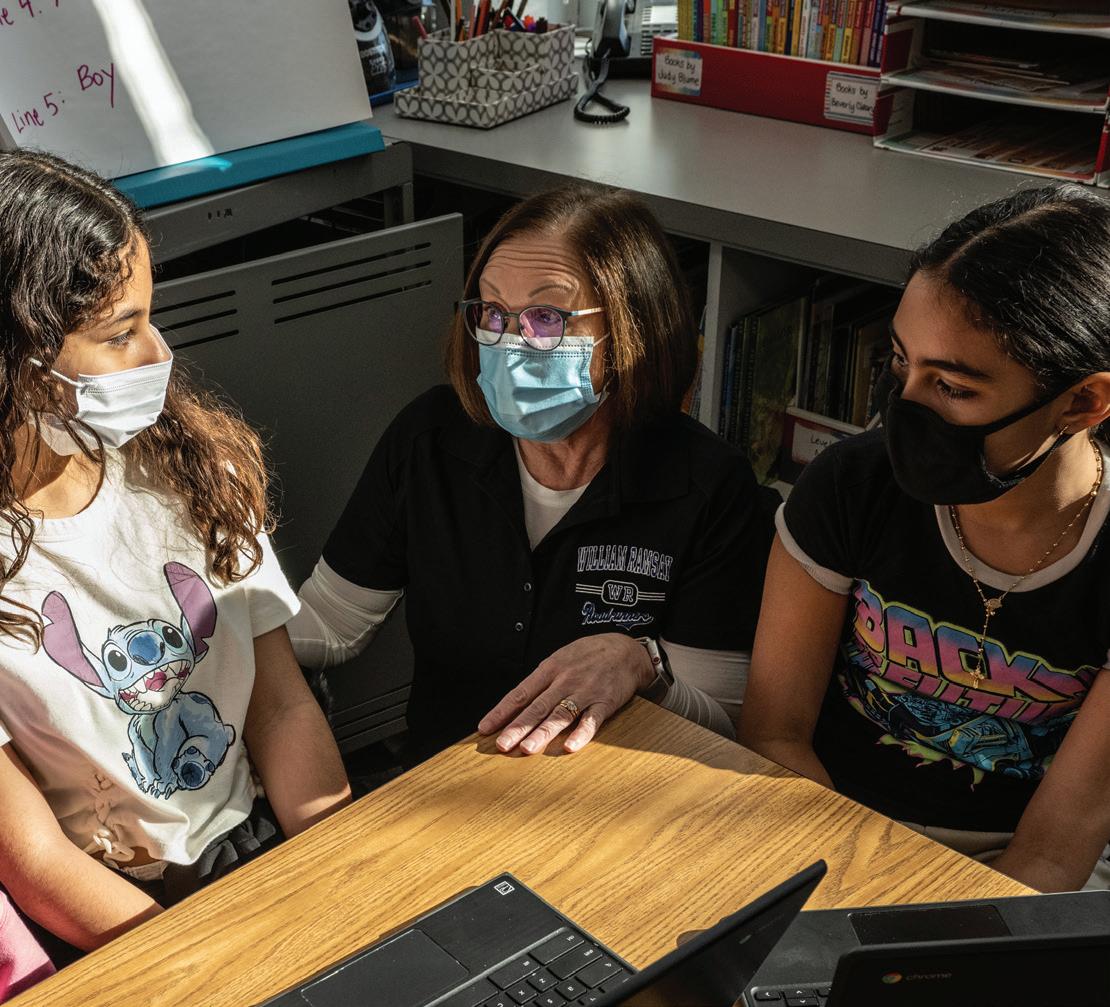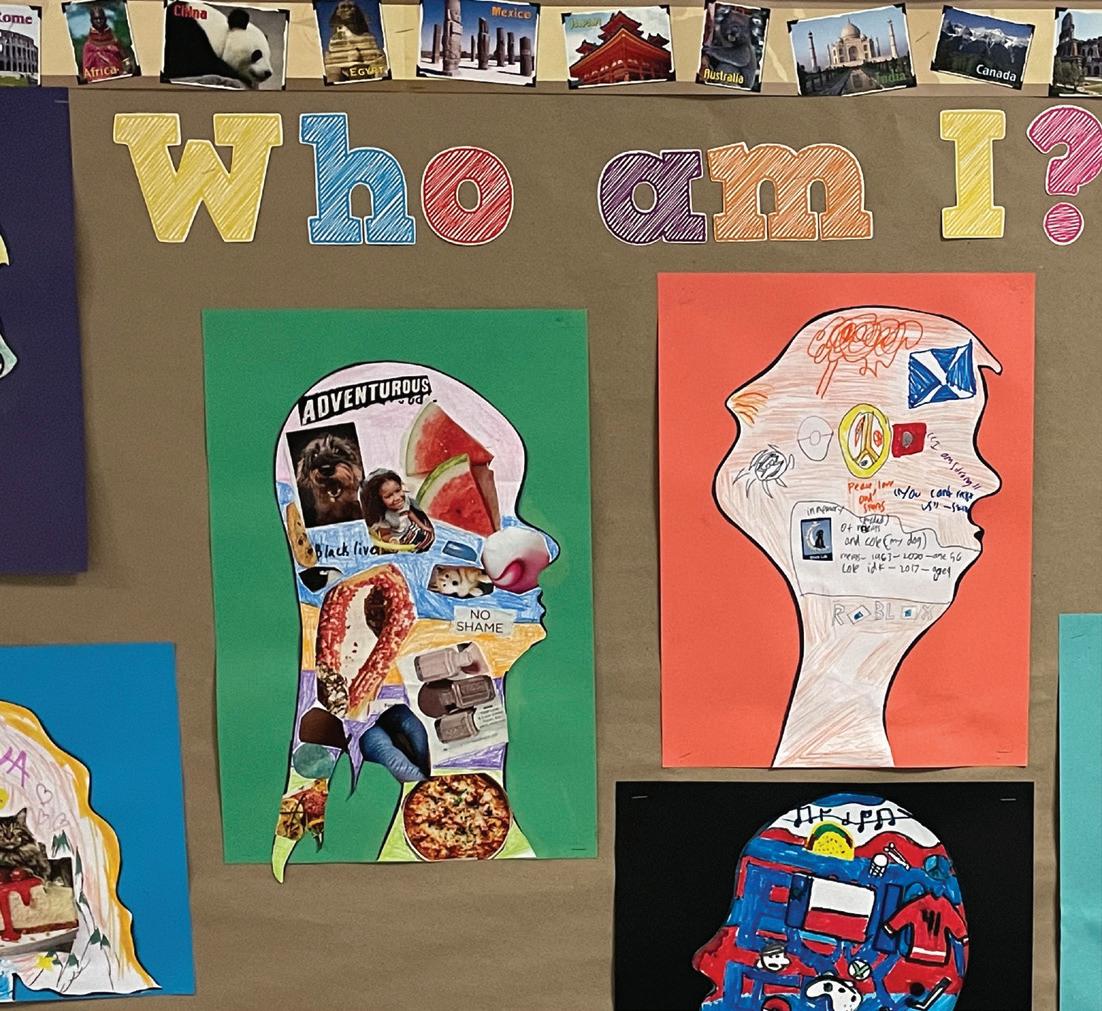
4 minute read
Academic Disparities
ACADEMIC DISPARITIES: Hispanic Male Graduation Rate
Accomplishments during SY 2020-21
Advertisement
• Provided Student Support Team (SST) social/emotional support through groups, mentor programs and one-on-one meetings. • Tracked academy interventions for 189 Hispanic male students. • Expanded the Multi-Tiered System of Support (MTSS) program across academies. • Expanded the Graduation Task Force to include Central Office and school leadership to consistently monitor progress toward graduation.
Key Milestones
• Quarterly Chats. • Monthly Graduation Task Force Meetings. • Weekly Schoolwide MTSS Meetings. • Ongoing Examination of Quarterly Grade Distribution. • Weekly International Academy Team Meetings. • June and July Graduation Dates. Next Steps
• Establish a dedicated summer effort to help remaining senior students graduate, monitor those not on track and set up the
Alternative Pathways to Achievement program. • Expand the Alternative Pathways to Achievement classes at night to support students who have employment obligations during the day. • Continue to partner with Jobs for Virginia Graduates with a focus on students achieving employability and leadership skills (a grant through the Career and Technical Education [CTE] Program). • Expand our partnership with Urban Alliance to further student internships and work-force development opportunities, which will in turn positively impact the College and Career Readiness
Initiative.
ACADEMIC DISPARITIES: PreK – 2 Literacy
Accomplishments during SY 2020-21
• A team of diverse stakeholders reviewed 21 phonics resource requests for proposals (RFPs) in light of current scientific reading research. The team procured high-quality curriculum resources to support structured and systematic phonics and phonemic aware- ness instruction throughout all K-2 ACPS classrooms. • Teachers adopted and were trained in the use of assessments for remote administration to assess learning gaps and plan datainformed instruction, including 45 minutes of daily, small-group
English Language Development (ELD) instruction for English
Learners (ELs). • Ongoing professional learning was facilitated to support teachers in providing differentiated reading and writing instruction, including use of strategies like Guided Language Acquisition
Design (GLAD) to support ELs, across remote and hybrid settings.
Key Milestones
• August 2020-May 2021: The Alexandria City Pre-K Collaborative convened to facilitate cross-community planning, ensuring curriculum alignment and resource access across all partnerships and ACPS programs. • Sept. 2020, Nov. 2020, Feb. 2021, and March 2021: 25,000 learning packets and activity choice boards were delivered to students. • July 6, 2021: 1,830 preK-2 students began ACPS virtual and in-person Summer Learning programs with the use of material kits, learning packets and more than 20,000 take-home books to provide continuity of learning across the summer. Next Steps

• Provide divisionwide trainings, in-class coaching and ongoing
Professional Learning Community (PLC) improvement protocols to support the implementation of new phonics and phonemic awareness resources to facilitate teacher proficiency; this includes hands-on manipulatives, vibrant visual teacher presentation tools, adaptive software to meet differentiated needs, multisensory supports to create strong letter-sound linkages in the brain and a comprehensive scope and sequence of phonics and phonemic awareness instruction to support strong decoding skills and fluent reading for all ACPS readers. • Implement Al’s Pals social-emotional learning evidenced-based curriculum throughout ACPS’ pre-K classrooms to support selfregulation and executive functioning skills. • Explore curricular resources to support systematic phonemic awareness instruction throughout pre-K classrooms in future years.
ACADEMIC DISPARITIES: Talented and Gifted (TAG)

Accomplishments during SY 2020-21
• Expanded the Young Scholars (YS) Program. • Expanded Universal Screenings.
Key Milestones
• During the 2020–21 school year, the Young Scholars model has expanded to all elementary schools. • Screening for all third grade students was completed in 2021.
Next Steps
• Write a new Local Plan with equity at the forefront and with a goal to decrease disparities in academic access across schools and levels of TAG services. • Within the Local Plan, address the identification procedure and the delivery of services. • Continue to strengthen the Young Scholars model.
ACADEMIC DISPARITIES: Students with Disabilities (SWD) and Emotionally Disabled (ED) Black Students
Accomplishments during SY 2020-21
Academic support was provided during targeted intervention blocks. A clinical specialist and behavior specialist provided professional learning to school-based Student Support Teams (SSTs) and collaborated with teams to direct student support through counseling groups and therapeutic interventions.
Additionally, a licensed clinical social worker (LCSW) provided professional learning and consultation to school-based teams. This addressed implementation of intervention strategies and coaching and modeling of interventions to support positive strategies for student growth.
Key Milestones
• Hired highly qualified personnel to provide services. • Funded RULER and Valbrun Consulting professional learning programming. • Provided ongoing turnaround professional learning Equity
Training throughout the school year. • Provided professional learning for principals and assistant principals in areas of equity and disabilities. • Provided a presentation to the School Board addressing data surrounding the identification of Black students as ED. • Provided quarterly Lunch and Learn sessions to address the equity issues relevant to Black students and special education (SPED) identification. Next Steps

• Divisionwide professional learning. • Individual coaching and mentoring. • Assignment of an assessment team to schools. • Continuation of Lunch and Learn sessions.










